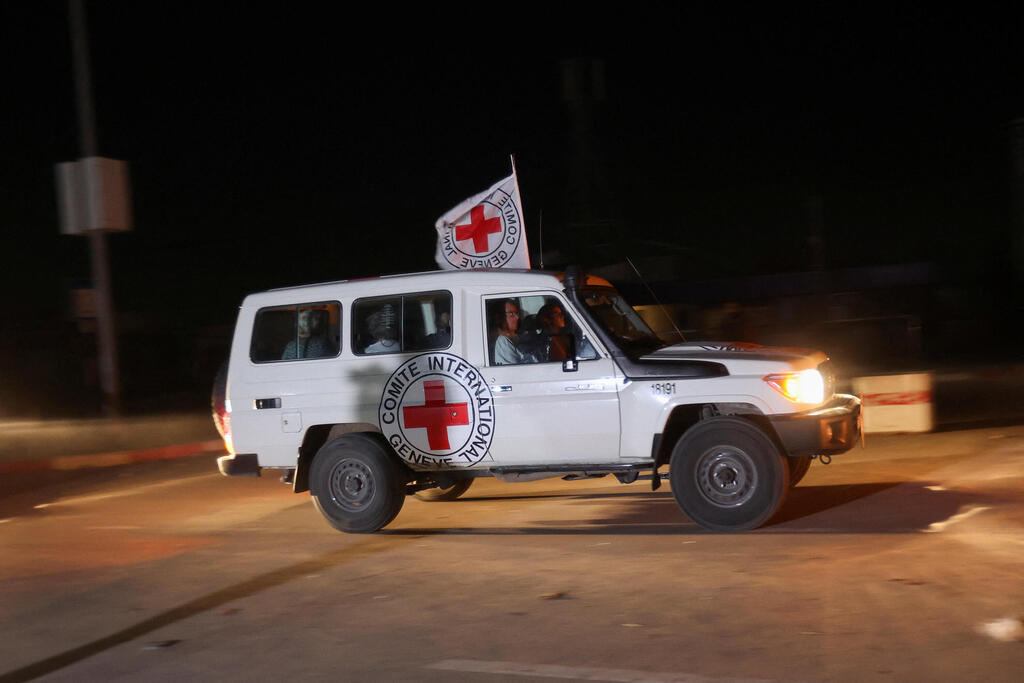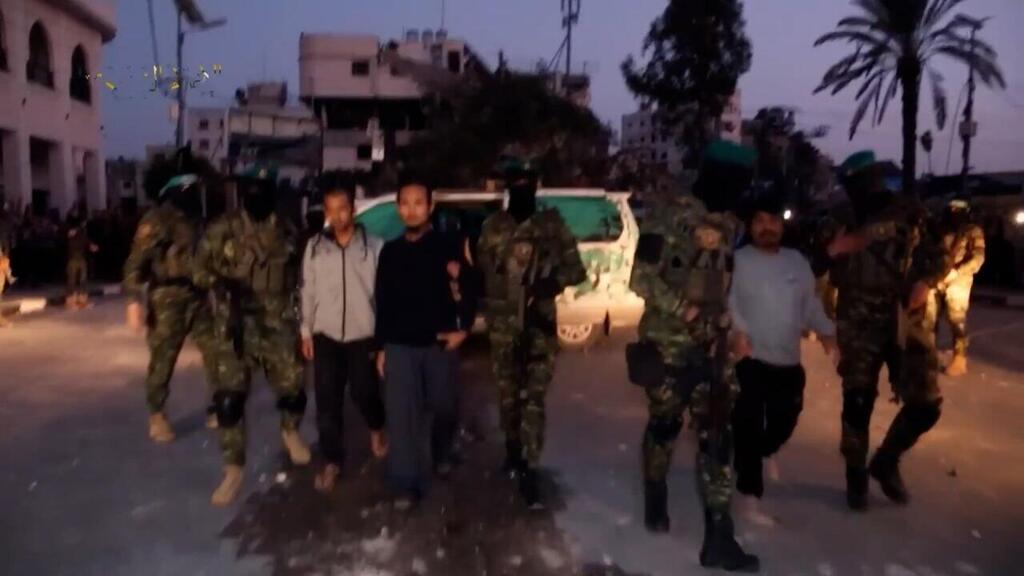Getting your Trinity Audio player ready...
Hours before the fourth step of the agreement with Hamas is set to start, and Israel is still examining the list of hostages set to be released on Monday. "Discussions are being held on the list that was received overnight and which is now being evaluated in Israel," according to a statement from the Prime Minister's Office - Coordinator for the Hostages and Missing. "Additional information will be issued when possible."
According to some in the Israeli government, the list they received is "problematic," and right now they're in the middle of "intense negotiations" trying to get it changed.
Read more:
Monday morning's acknowledgment of receipt of the list followed closely on the heels of a report by the Wall Street Journal. According to Egyptian officials cited in the report, Hamas had handed over a list to Israel on Sunday night after the release of the third group of hostages. The list contained the names of 11 hostages slated for release from the Gaza Strip Monday. The delay in Israel's confirmation of receiving this list is unusual and hints at potential issues with the transferred names. In contrast to previous instances, the families of the hostages are still awaiting updates.
Up until now, Hamas has freed 40 Israeli captives over a three-day period, in return for a cease-fire and the freeing of Palestinian prisoners. The third exchange saw 14 individuals released Sunday night. However, one of these was a Russian citizen who, according to Hamas, was released as a gesture of goodwill toward President Vladimir Putin. Concurrently, Hamas also released an additional 17 foreign laborers from Thailand and one from the Philippines. These releases, which occurred in phases along with the Israelis, were part of a separate agreement forged with Tehran and Bangkok.
Mediated with the help of the Unites States, Qatar and Egypt, the current deal includes four successive days of hostages releases, with a total at least 50 people going home, which means Monday marks the original deal's final day. As it turns out, though, both Israel and Hamas are open to an extension, stipulating every additional day of a cease-fire would entail the release of another 10 hostages from the clutches of Hamas.
Theoretically, if the deal were to be successfully extended on a 3-to-1 basis (meaning Israel, for every hostage given back, would release three Palestinian detainees from its prisons), it's possible Hamas would released 20-40 more hostages, in exchange for Israel halting all aggression toward Hamas for 2 to 4 more days.
Current assessments allege 177 hostages still held by Hamas, though the terrorist organization says it doesn't hold every single one of them, and needs time to locate the rest. US national security adviser, Jake Sullivan, said the Biden administration is aware of this, and believes the Palestinian Islamic Jihad is in possession of several hostages, and would surrender them to Hamas should the deal be extended.




